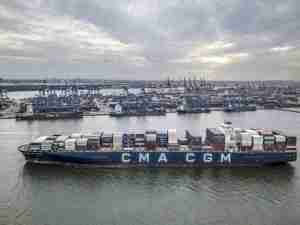Not surprisingly, Surface Transportation Board Chairman Charles Nottingham received an enthusiastic response when he advised an audience at the NASSTRAC Logistics Conference and Expo of a landmark decision that should signal the end of collective ratemaking on the part of motor carriers.
In a May 7 keynote address to the gathering in Orlando of more than 300 transportation and logistics professionals, Nottingham announced an STB decision terminating the antitrust immunity of the national classification committee and other rate bureaus.
NASSTRAC President Gail Rutkowski, who is director of operations for Collierville, TN-based AIMS Logistics, commented, 'We have felt for many years that collective ratemaking by carriers is anticompetitive and does not benefit shippers. That's why NASSTRAC took the lead for shippers in the STB proceedings and encouraged participation by the US Department of Justice.'
NASSTRAC is a shipper-based association that provides advocacy, education, provider relations and networking for professionals involved in all areas of transportation, ranging from full truckload and less-than-truckload to containerization and global logistics. This year's conference was held May 6-9 at the Renaissance Orlando Resort at SeaWorld.
John Cutler, NASSTRAC's general counsel, also greeted the STB news with enthusiasm.
'Motor carrier collective ratemaking is a holdover from the cartel era of trucking industry pricing and is inconsistent with the competitive goals of deregulation,' Cutler said. 'Reforms the STB adopted in the last round of proceedings did not solve the problem, so NASSTRAC welcomes the new decision by the Surface Transportation Board. This is an issue we've been working on for more than 10 years.
'The board's decision is consistent with the pro-competitive principles recently announced by the Antitrust Modernization Commission,' Cutler continued. 'Shippers and carriers benefit from competition. That is the main lesson of deregulation.'
The STB's decision should mean that future general rate increases are developed by carriers acting individually rather than collectively. The National Motor Freight Classification (NMFC) pricing tool may still be used for rating shipments, if shippers and carriers agree. But changes in class ratings will be up for negotiation, instead of being imposed through carriers acting collectively with antitrust immunity.
The chairman of NASSTRAC's advocacy committee, Mike Regan, said, 'This decision demonstrates the importance of shipper groups such as NASSTRAC.'
Regan, who is president of Elmhurst, IL-based TranzAct Technologies Inc., said he also is encouraged by the announcement at the conference that NASSTRAC is the first shipper organization to join a new group ' Supporting Americans for a Strong National Highway Network ' formed by the American Trucking Association. The collaborative effort was approved unanimously by NASSTRAC's executive committee at a May 5 pre-conference leadership meeting.
'We're working together,' Regan said. 'This is a true collaboration with our carriers to call attention to the need for adequate construction and maintenance of highways.
'NASSTRAC members, like many transportation and logistics professionals, operate supply chains that depend on just-in-time deliveries,' Regan added. 'Minimizing inventories is highly efficient, but it only works if we can count on timely deliveries. Despite NASSTRAC's broad focus on all modes and market segments in transportation, this tends to mean relying on truck transportation over the nation's highways ' more so than any other mode used by the majority of NASSTRAC's members.'
Cutler said NASSTRAC and ATA memberships are concerned about tolling, privatization and other types of unconventional funding. He commented, 'Since freight volumes are projected to grow faster than investment in highway and carrier capacity, we unanimously support adequate growth in the nation's transportation infrastructure as a whole.
'The hi








